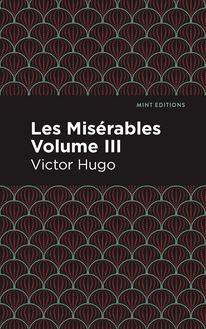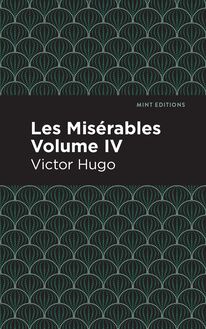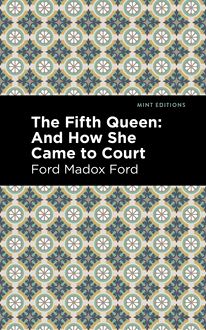-
 Univers
Univers
-
 Ebooks
Ebooks
-
 Livres audio
Livres audio
-
 Presse
Presse
-
 Podcasts
Podcasts
-
 BD
BD
-
 Documents
Documents
-
- Cours
- Révisions
- Ressources pédagogiques
- Sciences de l’éducation
- Manuels scolaires
- Langues
- Travaux de classe
- Annales de BEP
- Etudes supérieures
- Maternelle et primaire
- Fiches de lecture
- Orientation scolaire
- Méthodologie
- Corrigés de devoir
- Annales d’examens et concours
- Annales du bac
- Annales du brevet
- Rapports de stage
La lecture à portée de main
Vous pourrez modifier la taille du texte de cet ouvrage
Découvre YouScribe en t'inscrivant gratuitement
Je m'inscrisDécouvre YouScribe en t'inscrivant gratuitement
Je m'inscrisEn savoir plus
Vous pourrez modifier la taille du texte de cet ouvrage
En savoir plus

Description
At the height of the student revolt, Valjean arrives at the barricade and saves multiple lives including Marius, who is still eager to find Cosette. Despite his family and Valjean’s reservations, Marius is committed to marrying her.
Jean Valjean joins the revolt and finds the streets in disarray. He locates Marius who has been badly injured but is still alive. While attempting to bring Marius to safety, Valjean encounters a couple of dangerous figures from his past. Inspector Javert finds himself in a peculiar position where Valjean expresses mercy instead of vengeance. It’s an unsuspecting act that challenges his outlook. Elsewhere, Marius heals and finally reunites with Cosette. The couple decides to get married but are blindsided by Valjean’s unspoken truth.
Les Misérables Volume Five: Jean Valjean is a brilliant finale to one of the most revered novels of all-time. It is a compelling story marked by unforgettable characters.
This is a captivating tale that’s been adapted multiple times for stage, television and film. The most notable being the 2012 Oscar-winning production from director, Tom Hooper.
With an eye-catching new cover, and professionally typeset manuscript, this edition of Les Misérables Volume Five: Jean Valjean is both modern and readable.
Sujets
Informations
| Publié par | Mint Editions |
| Date de parution | 24 mars 2021 |
| Nombre de lectures | 0 |
| EAN13 | 9781513284828 |
| Langue | English |
| Poids de l'ouvrage | 3 Mo |
Informations légales : prix de location à la page 0,0500€. Cette information est donnée uniquement à titre indicatif conformément à la législation en vigueur.
Extrait
Les Miserables
Volume V: Jean Valjean
Victor Hugo
Les Miserables was first published in 1862.
This edition published by Mint Editions 2020.
ISBN 9781513279800 | E-ISBN 9781513284828
Published by Mint Editions®
minteditionbooks.com
Publishing Director: Jennifer Newens
Design & Production: Rachel Lopez Metzger
Project Manager: Micaela Clark
Translated by: Isabel F. Hapgood
Typesetting: Westchester Publishing Services
More in This Series:
Les Miserables Volume I: Fantine
Les Miserables Volume II: Cosette
Les Miserables Volume III: Marius
Les Miserables Volume IV: The Idyll in the Rue Plumet and the Epic in the Rue St. Denis
C ONTENTS B OOK F IRST . T HE W AR B ETWEEN F OUR W ALLS I. T HE C HARYBDIS OF THE F AUBOURG S AINT A NTOINE AND THE S CYLLA OF THE F AUBOURG D U T EMPLE II. W HAT IS TO B E D ONE IN THE A BYSS IF O NE D OES N OT C ONVERSE III. L IGHT AND S HADOW IV. M INUS F IVE , P LUS O NE V. T HE H ORIZON W HICH O NE B EHOLDS FROM THE S UMMIT OF A B ARRICADE VI. M ARIUS H AGGARD , J AVERT L ACONIC VII. T HE S ITUATION B ECOMES A GGRAVATED VIII. T HE A RTILLERY -M EN C OMPEL P EOPLE TO T AKE T HEM S ERIOUSLY IX. E MPLOYMENT OF THE O LD T ALENTS OF A P OACHER AND THAT I NFALLIBLE M ARKSMANSHIP W HICH I NFLUENCED THE C ONDEMNATION OF 1796 X. D AWN XI. T HE S HOT W HICH M ISSES N OTHING AND K ILLS N O O NE XII. D ISORDER A P ARTISAN OF O RDER XIII. P ASSING G LEAMS XIV. W HEREIN W ILL A PPEAR THE N AME OF E NJOLRAS ’ M ISTRESS XV. G AVROCHE O UTSIDE XVI. H OW FROM A B ROTHER O NE B ECOMES A F ATHER XVII. M ORTUUS P ATER F ILIUM M ORITURUM E XPECTAT XVIII. T HE V ULTURE B ECOME P REY XIX. J EAN V ALJEAN T AKES H IS R EVENGE XX. T HE D EAD ARE IN THE R IGHT AND THE L IVING ARE NOT IN THE W RONG XXI. T HE H EROES XXII. F OOT TO F OOT XXIII. O RESTES F ASTING AND P YLADES D RUNK XXIV. P RISONER B OOK S ECOND . T HE I NTESTINE OF THE L EVIATHAN I. T HE L AND I MPOVERISHED BY THE S EA II. A NCIENT H ISTORY OF THE S EWER III. B RUNESEAU IV. V. P RESENT P ROGRESS VI. F UTURE P ROGRESS B OOK T HIRD . M UD BUT THE S OUL I. T HE S EWER AND ITS S URPRISES II. E XPLANATION III. T HE “S PUN ” M AN IV. H E A LSO B EARS H IS C ROSS V. I N THE C ASE OF S AND AS IN THAT OF W OMAN , T HERE IS A F INENESS W HICH IS T REACHEROUS VI. T HE F ONTIS VII. O NE S OMETIMES R UNS A GROUND W HEN O NE F ANCIES THAT O NE IS D ISEMBARKING VIII. T HE T ORN C OAT -T AIL IX. M ARIUS P RODUCES ON S OME O NE W HO IS A J UDGE OF THE M ATTER , THE E FFECT OF B EING D EAD X. R ETURN OF THE S ON W HO W AS P RODIGAL OF H IS L IFE XI. C ONCUSSION IN THE A BSOLUTE XII. T HE G RANDFATHER B OOK F OURTH . J AVERT D ERAILED I. B OOK F IFTH . G RANDSON AND G RANDFATHER I. I N W HICH THE T REE WITH THE Z INC P LASTER A PPEARS A GAIN II. M ARIUS , E MERGING FROM C IVIL W AR , M AKES R EADY FOR D OMESTIC W AR III. M ARIUS A TTACKED IV. M ADEMOISELLE G ILLENORMAND E NDS BY N O L ONGER T HINKING IT A B AD T HING T HAT M. F AUCHELEVENT S HOULD H AVE E NTERED W ITH S OMETHING U NDER H IS A RM V. D EPOSIT Y OUR M ONEY IN A F OREST R ATHER THAN WITH A N OTARY VI. T HE T WO O LD M EN D O E VERYTHING , E ACH O NE A FTER H IS O WN F ASHION , TO R ENDER C OSETTE H APPY VII. T HE E FFECTS OF D REAMS M INGLED W ITH H APPINESS VIII. T WO M EN I MPOSSIBLE TO F IND B OOK S IXTH . T HE S LEEPLESS N IGHT I. T HE 16 TH OF F EBRUARY , 1833 II. J EAN V ALJEAN S TILL W EARS H IS A RM IN A S LING III. T HE I NSEPARABLE IV. T HE I MMORTAL L IVER B OOK S EVENTH . T HE L AST D RAUGHT FROM THE C UP I. T HE S EVENTH C IRCLE AND THE E IGHTH H EAVEN II. T HE O BSCURITIES W HICH A R EVELATION C AN C ONTAIN B OOK E IGHTH . F ADING A WAY OF THE T WILIGHT I. T HE L OWER C HAMBER II. A NOTHER S TEP B ACKWARDS III. T HEY R ECALL THE G ARDEN OF THE R UE P LUMET IV. A TTRACTION AND E XTINCTION B OOK N INTH . S UPREME S HADOW , S UPREME D AWN I. P ITY FOR THE U NHAPPY , B UT I NDULGENCE FOR THE H APPY II. L AST F LICKERINGS OF A L AMP W ITHOUT O IL III. A P EN IS H EAVY TO THE M AN W HO L IFTED THE F AUCHELEVENT ’ S C ART IV. A B OTTLE OF I NK W HICH O NLY S UCCEEDED IN W HITENING V. A N IGHT B EHIND W HICH T HERE I S D AY VI. T HE G RASS C OVERS AND THE R AIN E FFACES
BOOK FIRST
THE WAR BETWEEN FOUR WALLS
I
T HE C HARYBDIS OF THE F AUBOURG S AINT A NTOINE AND THE S CYLLA OF THE F AUBOURG D U T EMPLE
T he two most memorable barricades which the observer of social maladies can name do not belong to the period in which the action of this work is laid. These two barricades, both of them symbols, under two different aspects, of a redoubtable situation, sprang from the earth at the time of the fatal insurrection of June, 1848, the greatest war of the streets that history has ever beheld.
It sometimes happens that, even contrary to principles, even contrary to liberty, equality, and fraternity, even contrary to the universal vote, even contrary to the government, by all for all, from the depths of its anguish, of its discouragements and its destitutions, of its fevers, of its distresses, of its miasmas, of its ignorances, of its darkness, that great and despairing body, the rabble, protests against, and that the populace wages battle against, the people.
Beggars attack the common right; the ochlocracy rises against demos.
These are melancholy days; for there is always a certain amount of night even in this madness, there is suicide in this duel, and those words which are intended to be insults—beggars, canaille, ochlocracy, populace—exhibit, alas! rather the fault of those who reign than the fault of those who suffer; rather the fault of the privileged than the fault of the disinherited.
For our own part, we never pronounce those words without pain and without respect, for when philosophy fathoms the facts to which they correspond, it often finds many a grandeur beside these miseries. Athens was an ochlocracy; the beggars were the making of Holland; the populace saved Rome more than once; and the rabble followed Jesus Christ.
There is no thinker who has not at times contemplated the magnificences of the lower classes.
It was of this rabble that Saint Jerome was thinking, no doubt, and of all these poor people and all these vagabonds and all these miserable people whence sprang the apostles and the martyrs, when he uttered this mysterious saying: “Fex urbis, lex orbis,” —the dregs of the city, the law of the earth.
The exasperations of this crowd which suffers and bleeds, its violences contrary to all sense, directed against the principles which are its life, its masterful deeds against the right, are its popular coups d’état and should be repressed. The man of probity sacrifices himself, and out of his very love for this crowd, he combats it. But how excusable he feels it even while holding out against it! How he venerates it even while resisting it! This is one of those rare moments when, while doing that which it is one’s duty to do, one feels something which disconcerts one, and which would dissuade one from proceeding further; one persists, it is necessary, but conscience, though satisfied, is sad, and the accomplishment of duty is complicated with a pain at the heart.
June, 1848, let us hasten to say, was an exceptional fact, and almost impossible of classification, in the philosophy of history. All the words which we have just uttered, must be discarded, when it becomes a question of this extraordinary revolt, in which one feels the holy anxiety of toil claiming its rights. It was necessary to combat it, and this was a duty, for it attacked the republic. But what was June, 1848, at bottom? A revolt of the people against itself.
Where the subject is not lost sight of, there is no digression; may we, then, be permitted to arrest the reader’s attention for a moment on the two absolutely unique barricades of which we have just spoken and which characterized this insurrection.
One blocked the entrance to the Faubourg Saint Antoine; the other defended the approach to the Faubourg du Temple; those before whom these two fearful masterpieces of civil war reared themselves beneath the brilliant blue sky of June, will never forget them.
The Saint-Antoine barricade was tremendous; it was three stories high, and seven hundred feet wide. It barred the vast opening of the faubourg, that is to say, three streets, from angle to angle; ravined, jagged, cut up, divided, crenelated, with an immense rent, buttressed with piles that were bastions in themselves throwing out capes here and there, powerfully backed up by two great promontories of houses of the faubourg, it reared itself like a cyclopean dike at the end of the formidable place which had seen the 14th of July. Nineteen barricades were ranged, one behind the other, in the depths of the streets behind this principal barricade. At the very sight of it, one felt the agonizing suffering in the immense faubourg, which had reached that point of extremity when a distress may become a catastrophe. Of what was that barricade made? Of the ruins of three six-story houses demolished expressly, said some. Of the prodigy of all wraths, said others. It wore the lamentable aspect of all constructions of hatred, ruin. It might be asked: Who built this? It might also be said: Who destroyed this? It was the improvisation of the ebullition. Hold! take this door! this grating! this penthouse! this chimney-piece! this broken brazier! this cracked pot! Give all! cast away all! Push this roll, dig, dismantle, overturn, ruin everything! It was the collaboration of the pavement, the block of stone, the beam, the bar of iron, the rag, the scrap, the broken pane, the unseated chair, the cabbage-stalk, the tatter, the rag, and the malediction. It was grand and it was petty. It was the abyss parodied on the public place by hubbub. The mass beside the atom; the strip of ruined wall and the broken bowl,—threatening fraternization of every sort of rubbish. Sisyphus had thrown his rock there and Job his potsherd. Terrible, in sho
-
 Univers
Univers
-
 Ebooks
Ebooks
-
 Livres audio
Livres audio
-
 Presse
Presse
-
 Podcasts
Podcasts
-
 BD
BD
-
 Documents
Documents
-
Jeunesse
-
Littérature
-
Ressources professionnelles
-
Santé et bien-être
-
Savoirs
-
Education
-
Loisirs et hobbies
-
Art, musique et cinéma
-
Actualité et débat de société
-
Jeunesse
-
Littérature
-
Ressources professionnelles
-
Santé et bien-être
-
Savoirs
-
Education
-
Loisirs et hobbies
-
Art, musique et cinéma
-
Actualité et débat de société
-
Actualités
-
Lifestyle
-
Presse jeunesse
-
Presse professionnelle
-
Pratique
-
Presse sportive
-
Presse internationale
-
Culture & Médias
-
Action et Aventures
-
Science-fiction et Fantasy
-
Société
-
Jeunesse
-
Littérature
-
Ressources professionnelles
-
Santé et bien-être
-
Savoirs
-
Education
-
Loisirs et hobbies
-
Art, musique et cinéma
-
Actualité et débat de société
- Cours
- Révisions
- Ressources pédagogiques
- Sciences de l’éducation
- Manuels scolaires
- Langues
- Travaux de classe
- Annales de BEP
- Etudes supérieures
- Maternelle et primaire
- Fiches de lecture
- Orientation scolaire
- Méthodologie
- Corrigés de devoir
- Annales d’examens et concours
- Annales du bac
- Annales du brevet
- Rapports de stage




















